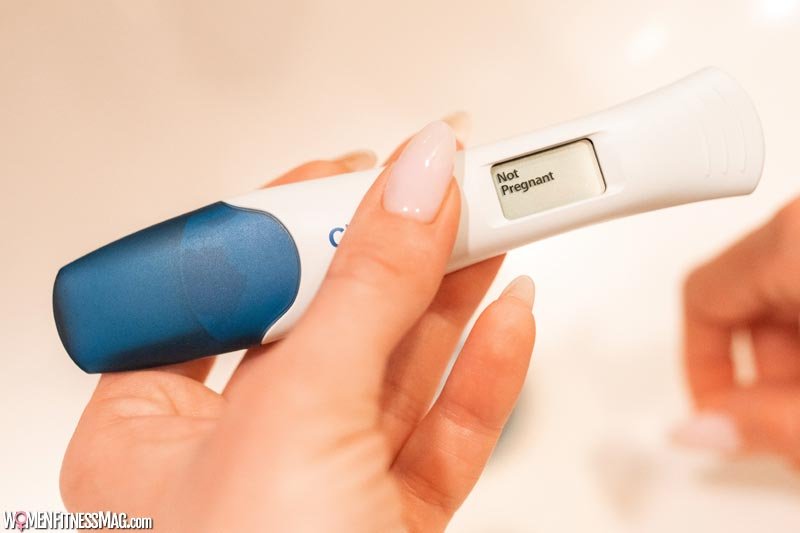Leading Causes Of Infertility In Women : Have you been trying to get pregnant for a while with no luck? Does it puzzle you that despite tracking your ovulation dates for the best chance at conception, you still don’t see the two red lines on the pregnancy test? Are you doing everything right with planning a pregnancy and still don’t understand why you can’t get pregnant?
If the answer to all these questions is a yes and it has been more than one year since you are actively trying to conceive, then It’s time for you to visit a fertility specialist who can help resolve the mystery.
Infertility in women is becoming increasingly common and there could be several inherent, environmental, genetic, and lifestyle factors that could be causing it. Let’s look at each of them:
-
PCOS
PCOS or polycystic ovary syndrome is one of the leading causes of infertility in women. In PCOS, your ovaries develop abnormal tissues and cysts in and around them, which interfere with the ovulation process. These abnormal cystic growths make the ovaries enlarged or swollen and
-
Unhealthy BMI
Your fertility health can take a hit because of the lack of a healthy BMI. If your BMI is under or over the average, it directly affects your pituitary gland and its ability to produce hormones. This disruption in the pituitary gland’s function interferes with the ovulation process. An unhealthy BMI can not only make it difficult for you to conceive but also increases the risk of miscarriages.
-
Premature Ovarian Failure
Premature ovarian failure is when your ovaries are unable to produce any more eggs. This can be a result of previous treatments like chemotherapy. It is also known as primary ovarian insufficiency and occurs because of your body’s inability to produce enough estrogen for the ovaries.
-
Hormonal levels
Other underlying issues like thyroid, diabetes, etc., can interfere with your pituitary gland function. Because of this, the gland sometimes overproduces prolactin leading to lower levels of estrogen in the body and therefore, infertility in women. Sometimes, your pituitary gland function may be disrupted due to medication you are taking for some other ailments as well.
-
Endometriosis
Endometriosis is a disorder in which the tissue that normally lines the uterus grows outside the uterus. With endometriosis, the tissue can be found on the ovaries, fallopian tubes, or intestines. Endometriosis has various stages of severity and based on the severity it can affect your fertility health.
-
Age
A woman’s fertility health is constantly deteriorating as they grow older. Most women who wait until their thirties or forties to bear a child are finding it difficult to conceive. This is because your fertility health is inversely proportional to your age. Older women have a lower ovarian reserve and are more prone to developing body ailments like thyroid, diabetes, blood pressure, etc., which can all lead to infertility. Moreover, the quality of eggs produced when you’re younger is far better than the ones produced when you’re older than 35 or 40 years.
-
Structural Abnormalities In Uterus
In many cases, structural defects or abnormalities in your uterus disallow the implantation of the embryo and you cannot sustain the pregnancy. Fibroids are non-cancerous tissues or masses that may develop along the wall of your uterus. Fibroids are rarely found along the uterine wall. However, if they do occur, they may cause troubles in your ovulation process and even the implantation of an embryo.
-
Lifestyles Choices
Lifestyle choices and habits like alcohol consumption, smoking, caffeine consumption, etc., are also another leading cause of infertility in women. All of these can interfere with the ovulation process by causing hormonal imbalances in your body. They also contribute towards the development of other diseases like thyroid and diabetes, which also interfere with your ovulation cycle.
-
Unexplained Reasons
In almost 40 percent of women, the reason for infertility is unknown. The fertility specialist cannot determine the exact cause of why you cannot conceive. The couple may be unable to conceive because of several factors or issues in the male as well as the female that is leading to their combined infertility.
Infertility can be both emotional and frustrating, especially in cases when the underlying cause or reason cannot be determined. Whatever be the scenario, seeking treatment for the issue must not be delayed. Consult your fertility specialist for the appropriate treatment options to overcome your infertility-causing issues and trying again for pregnancy at the earliest.
Always remember, that the longer you delay this, your fertility health will only keep deteriorating. Reach out to an experienced fertility specialist from a reliable IVF center to explore all options available to you.
Related Videos about Leading Causes Of Infertility In Women :
Understanding Infertility Causes and Investigations
What are the main causes of female infertility?
Gynaecology – Infertility in Women (causes and pathophysiology)
Causes of infertility in women
What causes Infertility in women & risk factors leading to it?
Leading Causes Of Infertility In Women
causes of infertility in males and females, types of infertility, female infertility treatment, causes of infertility in men, drugs that cause infertility in females, how to check for infertility, infertility definition, how do i know if i’m fertile female,




